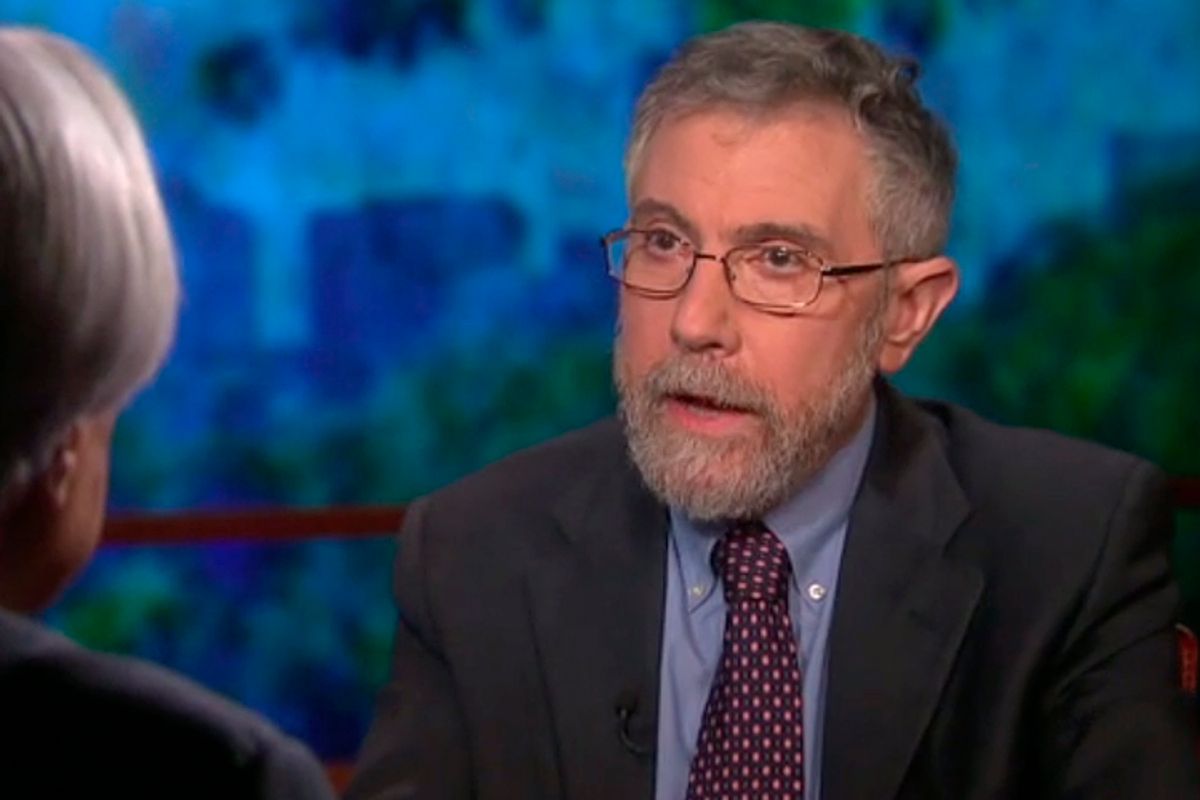In his Friday column for the New York Times, Paul Krugman advises the American people to stop listening to Federal Reserve officials who are obsessed with (and pathologically wrong about) inflation. Because such people are bad at making policy.
At the top of Krugman's list of people to politely ignore? Charles Plosser of the Philadelphia Fed, who has warned about the "danger of rising inflation" in 2008, 2009, 2010, 2011, 2012 and 2013. "He was wrong each time, but, undaunted, he’s now doing it again," Krugman notes. And Plosser isn't alone. There are plenty of Harold Campings in the economics business, each trying to influence policy by issuing "dire warnings" about inflation that never come to pass.
Now Krugman is a fair guy and knows the old adage about glass houses. He admits that he's had his fair share of wrong predictions, and that being wrong sometimes is just part of the game. But, he points out, "The inflation hawks, however, show no sign of learning from their mistakes. Where is the soul-searching, the attempt to understand how they could have been so wrong?":
Yes, low interest rates mean low long-term returns for bondholders (who are generally wealthy), but they also mean short-term capital gains for those same bondholders.
But while easy money may in principle have mixed effects on the fortunes (literally) of the wealthy, in practice demands for tighter money despite high unemployment always come from the right. Eight decades ago, Friedrich Hayek warned against any attempt to mitigate the Great Depression via “the creation of artificial demand”; three years ago, Mr. Ryan all but accused Ben Bernanke, the Fed chairman at the time, of seeking to “debase” the dollar. Inflation obsession is as closely associated with conservative politics as demands for lower taxes on capital gains.
It’s less clear why. But faith in the inability of government to do anything positive is a central tenet of the conservative creed. Carving out an exception for monetary policy — “Government is always the problem, not the solution, unless we’re talking about the Fed cutting interest rates to fight unemployment” — may just be too subtle a distinction to draw in an era when Republican politicians draw their economic ideas from Ayn Rand novels.
Krugman notes that there may come a time to take the "pedal off the metal" when it comes to the Fed's "easy money" policy, and that time may not be far off. But the inflation hawks who have been wrong for more than a decade are not the one's who should be making that call. Those people should be "listened to politely" (Krugman believes in good manners, of course), and "then ignored."

Shares